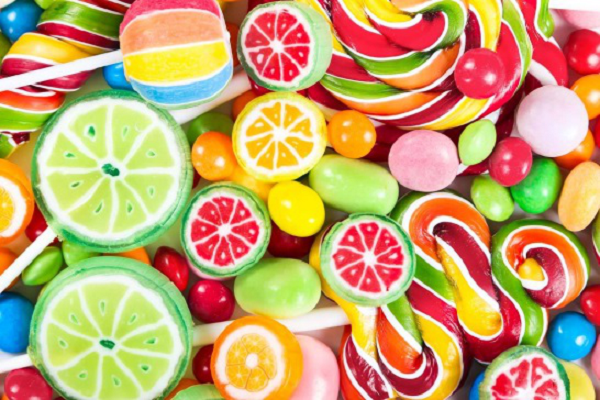The human tongue has a range of specific taste sensation neural receptors called taste receptors which are organized mainly as papillae on the tongue. When stimulated by chemicals, natural or synthetic, organic or inorganic, cations or anions, the receptors send signals to the brain which interprets the stimulations as sweet, bitter, sour, salty, and savory (unami, meaty taste). For examples, cations such as Na+ present in the table salt evoke the salty taste, and H+ presents in acids evokes a sour taste. Organic compounds such as sugars, dextrins and glycerol result in sweet taste, glutamate results in savory taste, while many toxic compounds such as nicotine, morphine, caffeine, quinine, etc. result in bitter taste. The sensation of tastes is an evolution trait for defense against poisons (normally evoke bitter taste), and for allowance of nutrients intake (normally evoke sweet or savory taste).
Sugar is a natural sweetener as well as a nutrient consumed in vast quantity around the world. It is one of the major calorie intakes by humans. Over consumption of sugar often leads to obesity and other related medical conditions. High blood sugar level (hyperglycemia) is a manifestation of the disease diabetic mellitus; if not managed properly, it could lead to a range of medical complications. To combat these medical conditions, high potency Sweeteners with no calorie or low calorie intake are often being used to substitute sugar. Proper control of calorie intake, coupled with the use of these sugar substitutes has been very effective in managing the medical conditions.
Besides the medical indications, using sugar substitutes brings the economic benefit of lowering the cost of many foods and consumer products, from soft drinks to cakes, pasties, and even toothpastes.
A variety of chemical compounds, natural or synthetic, can evoke sweet taste, but not all of them are safe (for example lead acetate has a sweet taste but it is extremely toxic), nor are sweet taste specific (for examples, many of synthetic sweeteners can also evoke other senses of taste such as bitterness or metallic sensation). Therefore, selection of the right sweetener for a specific use depends not only on the cost, but also more importantly on the health and safety, the sweetening potency, the effectiveness under various physical conditions such as cooking temperature (heat stability) and pH, as well as other unwanted tense of tastes of the sweetener.
At Sunshine Biotech, we have the expertise and technical know-hows to help you make the right selection for the right use.


Sweeteners
Artificial Sweetener,Stevia Liquid,Aspartame Powder,Neotame Powder
Nanjing Sunshine Biotech Co., Ltd , https://www.sunshine-bio.com